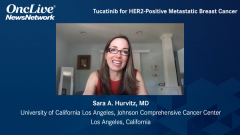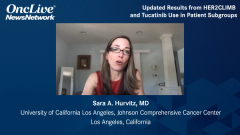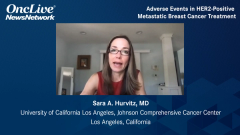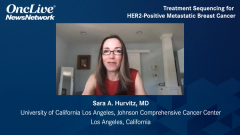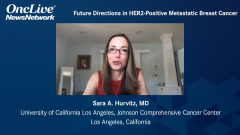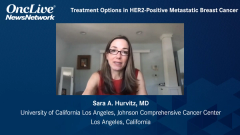
Future Directions in HER2-Positive Metastatic Breast Cancer
Sara A. Hurvitz, MD, reviews therapy options for patients with HER2-positive metastatic breast cancer and comments on emerging therapeutic strategies.
Episodes in this series

Sara A. Hurvitz, MD: It continues to be a really exciting time in the HER2 [human epidermal growth factor receptor 2] world. A number of agents are under investigation, including novel antibody-drug conjugates, immune-based therapies, and CDK4/6 inhibitors. I think the outcomes are going to continue to improve for women, and hopefully, we’ll be curing more women and treating fewer with metastatic disease. However, in the short-term setting, I think we’re going to be seeing some changes based on the results from clinical trials that have completed enrollment, looking at whether we can move T-DXd [trastuzumab deruxtecan] into the second-line setting, and whether we will be adding tucatinib to T-DM1 [trastuzumab emtansine]. Studies are looking at the use of tucatinib in early stage disease, as well as T-DXd in early stage disease. So, I think the landscape and our guidelines regarding how to sequence and use these agents is going to rapidly change in the next 2 to 3 years. It’s a very exciting time.
Transcript Edited for Clarity


